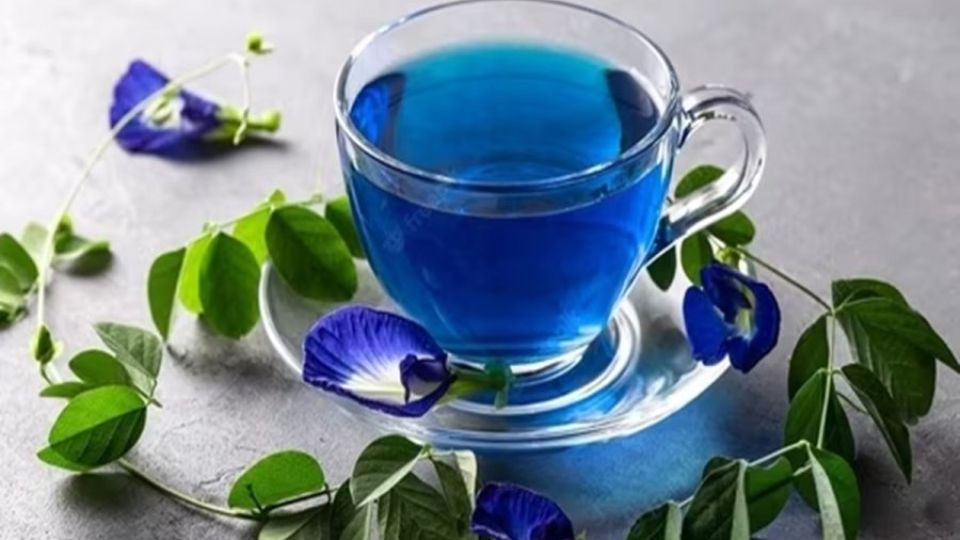Blue tea, as the name suggests, is a beverage characterized by its vibrant blue hue. It has gained popularity as a herbal tea trend in recent years due to its myriad health benefits. Renowned for enhancing heart and brain health, it also boasts anti-diabetic and anti-cancer properties. Let’s delve into the health advantages of blue tea.
Originating from South Asia, blue tea, also known as butterfly pea flower tea, is crafted by steeping the vivid blue petals of the Clitoria ternatea L. plant, which is also utilized as a natural food dye. Common alternative names for this tea include cordofan pea and Asian pigeonwings.
Abundant in antioxidants, especially anthocyanins, blue tea serves as a formidable ally in the body’s defense against free radicals and oxidative stress, factors that accelerate aging and contribute to chronic illnesses, as highlighted by nutritionist Chhavi Rohilla.
Here are some of the benefits associated with consuming blue tea:
- Butterfly pea flower tea contains compounds with potential anti-inflammatory qualities, contributing to the reduction of inflammation linked to various health issues.
- In Ayurveda, blue tea is believed to possess cooling qualities, making it beneficial for individuals with a “Pitta” constitution or those dealing with heat-related or inflammatory conditions, as it is often consumed to cool the body and balance excess heat.
- Blue tea is recognized for its potential anti-aging effects on the skin and overall vitality.
- Known for its relaxing and stress-relieving properties, blue tea’s interaction with brain chemicals may aid in anxiety reduction and promote a sense of calm.
- The flavonoids in blue tea contribute to skin suppleness and preservation. Regular consumption may help cleanse the body, brighten the complexion, and eliminate dark spots.
How to Prepare Blue Tea:
Preparing blue tea is a simple process involving boiling dried lemongrass and blue pea flower petals in water for 5 to 10 minutes. Mixing the herbal blend with honey before meals or enjoying it cold post-meals can assist in digestion and promote restful sleep.
Incorporating blue tea into your daily routine is easy, as its caffeine-free nature makes it a delightful alternative to traditional morning beverages. Whether enjoyed warm for a comforting start to the day or as a chilled iced tea for a refreshing experience, blue tea offers versatility.
While blue tea is generally safe for consumption, excessive intake may lead to digestive discomfort, according to Rohilla. Nevertheless, further research is needed to validate its effects. With its diverse health benefits and adaptable qualities, blue tea stands out as a valuable addition to a regular diet.





